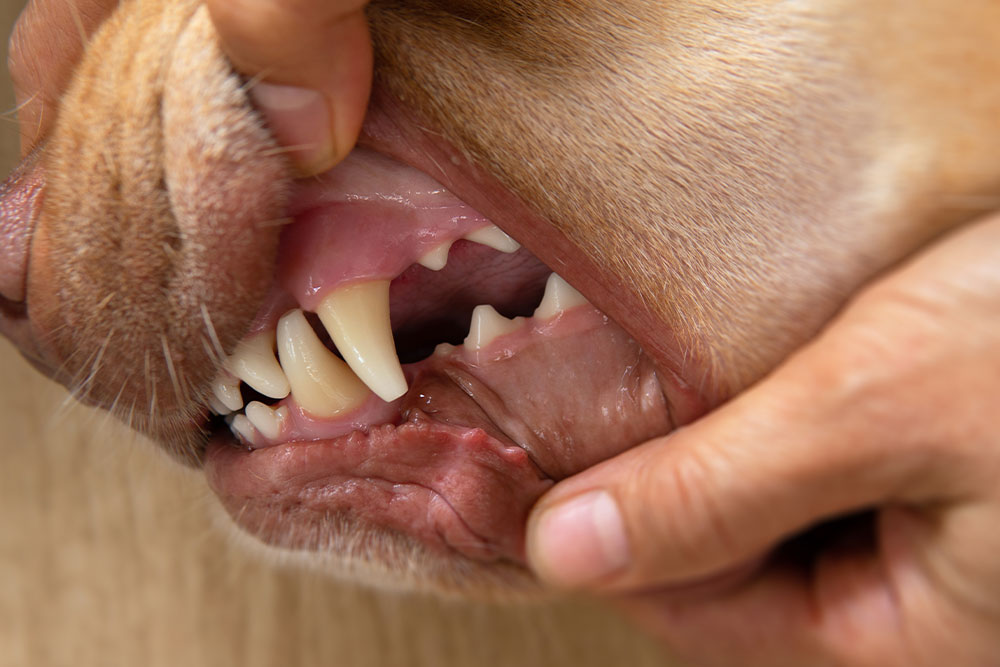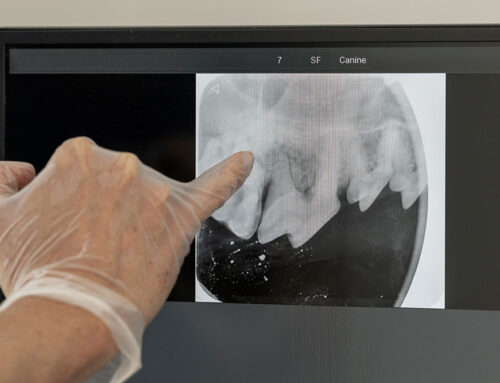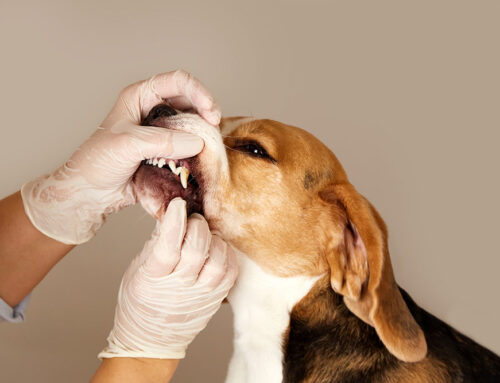What Happens When You Skip Your Pet’s Dental Cleanings
We all want our pets to live long, happy lives- but when it comes to dental care, many pet owners don’t realize how much oral health affects overall well-being. At Town & Country Animal Hospital in Athens, Alabama, we regularly help pet parents manage the often-overlooked issue of dental disease. Left unaddressed, it can cause chronic pain, systemic illness, and even shorten your pet’s life.
Here’s what you need to know- and why consistent dental care is one of the most powerful ways to protect your pet’s health.
Understanding Dental Disease: It’s More Than Just Bad Breath
Dental disease, or periodontal disease, is one of the most common conditions affecting dogs and cats. It starts with plaque, a soft layer of bacteria on the teeth, which hardens into tartar if not removed. Tartar causes gingivitis, or gum inflammation, which can progress to periodontitis– an irreversible breakdown of the supporting bone and tissue around the teeth. While it may start silently, the effects go far beyond your pet’s mouth.
Learn more about proper dental hygiene and signs of trouble from the AVMA Pet Dental Care Guide.
Which Pets Are Most at Risk?
While any pet can develop dental issues, some are more prone than others due to:
- Breed: Small breeds and flat-faced pets (like French Bulldogs and Pugs) often have crowded or misaligned teeth. This Royal Canin guide explains why smaller dogs need extra dental attention.
- Retained baby teeth: Especially common in small or toy breeds. Learn about treatment options in this guide on deciduous tooth removal.
- Jaw abnormalities: Misalignment (malocclusion) can cause uneven wear and injury. DVM360 breaks down malocclusion types and treatments.
- Chew habits: Chewing overly hard toys or objects can lead to broken teeth. The AKC warns about the trouble with toy teeth.
Hidden Impact: How Dental Disease Affects the Whole Body
A diseased mouth can have ripple effects throughout the body. Bacteria from infected gums can enter the bloodstream and damage the heart, liver, and kidneys. Chronic dental pain can also lead to behavior changes, reluctance to eat, and diminished quality of life. According to AAHA, keeping the mouth healthy plays a crucial role in preventing systemic illness.
Signs Your Pet Might Be in Pain
Unfortunately, pets are experts at hiding discomfort. Look for these signs:
- Persistent bad breath
- Drooling or blood in the saliva
- Difficulty eating or chewing on one side
- Red, inflamed gums
- Missing, loose, or discolored teeth
- Pawing at the mouth or rubbing the face
- Behavior changes such as irritability or withdrawal
In severe cases, oral tumors or painful ulcerative diseases may also be present. Learn more here.
What Happens If You Don’t Act?
Ignoring dental disease won’t make it go away. In fact, it worsens over time:
- Broken teeth can become infected. Read about treatment options here.
- Advanced periodontitis may lead to jaw fractures, especially in smaller dogs. See how jaw fractures are treated in veterinary dentistry.
- Cysts or abscesses may form at the tooth root, requiring surgery.
- Retained baby teeth, if not removed, can cause permanent damage to adult teeth or crowd the jaw.
Daily Impact: How Dental Pain Affects Your Pet’s Life
Pets suffering from oral discomfort may seem “grumpy,” skip meals, or shy away from affection. You might notice subtle changes in how they play, groom themselves, or interact with other pets. Over time, untreated dental disease reduces their energy, appetite, and joy in daily routines. You know your pet best- trust your instincts if something feels off.
Preparing for a Dental Appointment
To get the most from your visit, bring:
- Medical records, especially if your pet has had prior dental issues
- A list of medications or supplements
- Notes on changes in behavior, appetite, or energy
- Any questions about anesthesia, recovery, or at-home care
We’re happy to discuss your pet’s specific risks and whether any corrective procedures (like malocclusion adjustment or retained tooth removal) may be necessaryDiagnostics: What to Expect During a Dental Visit
During your visit, we’ll examine your pet’s mouth and recommend dental X-rays under anesthesia. These images are essential for spotting disease below the gumline that can’t be seen with the naked eye. Learn why dental X-rays are so important.
We follow AAHA standards for anesthesia and dental safety, ensuring your pet is monitored and comfortable throughout the procedure.
What You Can Do at Home
Preventing dental disease is an everyday effort. Here’s how to stay ahead:
- Brush your pet’s teeth daily with pet-safe toothpaste.
- Use VOHC-approved dental chews or rinses to help manage plaque. See the full list of VOHC-recommended products.
- Schedule annual dental exams and cleanings.
- Avoid hard bones, antlers, or nylon chews that may fracture teeth.
We’re Here to Help
At Town & Country Animal Hospital, we believe a healthy mouth leads to a healthier, happier pet. If you’re unsure whether your pet needs dental care, don’t wait for symptoms to become severe. Preventive action today can mean a longer, more comfortable life tomorrow. Schedule an appointment with our team- we’re here to support you every step of the way.








Leave A Comment